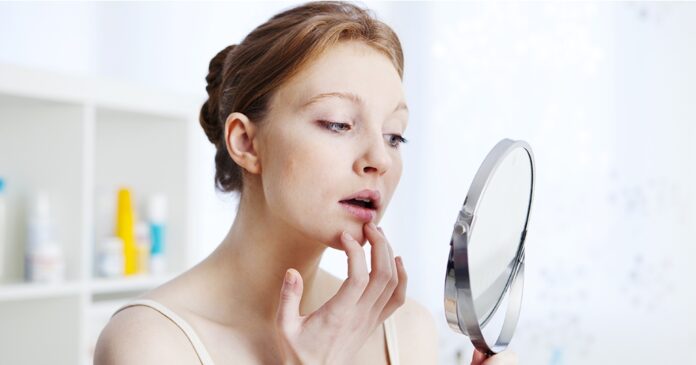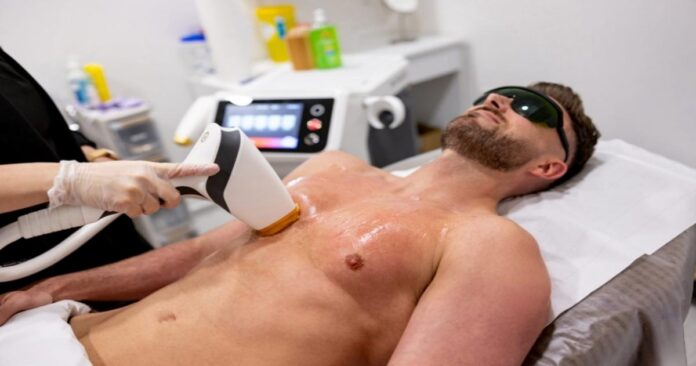Introduction
Your skin deserves all the attention it gets. Prioritizing your skin care is the best reward for that one organ that reflects your internal well-being to the world while weathering different environmental insults to your health.

Nutrition plays a great role in skin care. Ensuring adequate intake of essential nutrients is as important for the skin as any physical skincare routine. Many types of nutrients enhance your skin and they include vitamins, minerals, proteins, and lipids. Vitamins are MVPs on the skincare block; they are principal anti-aging agents. They are available naturally, in supplemental form, and as well in skin products.
In this article, you will learn more about the 5 best vitamins that are great for your skin, and how to use them safely and maximally for your skin benefits.
1. Vitamin A
Vitamin A, called retinol in its active form, promotes effective functions of the eye and skin among other benefits. In the skin, vitamin A and its analogs support smoother and younger-looking skin by stimulating faster skin cell turnover [1]. It also boosts collagen and elastin fiber production which reduces fine lines and wrinkles thus promoting better skin elasticity. Topical retinoids are also used to treat acne and other skin conditions.
Vitamin A may be obtained naturally from food sources like fruits, leafy green vegetables, beef liver, fish oils, milk, and eggs. Dietary supplements may contain preformed vitamin A (retinyl esters) or provitamin A (beta-carotene) which can be converted to the active form in the body. These ingredients are also present in some skin products for topical use.
It is possible to get an adequate amount (900 mcg daily RDA) of vitamin A from the diet. High-strength vitamin A supplements should be taken only when prescribed by a doctor to avoid toxic accumulation and side effects. More so, do not use vitamin A if you are pregnant. Finally, as vitamin A in skin products may increase skin sensitivity to bright light, it is advisable to apply such products at night or avoid intense sunlight during the day.
2. Vitamin B3
Though a relatively unsung hero in skin health, vitamin B3 also called niacinamide or nicotinamide exerts all-rounded skin enhancement effects. Niacinamide strengthens the skin barrier and immunity by stimulating keratin and ceramide synthesis. It exhibits a moisturizing effect and reduces skin oiliness and pore size, all of which make the skin look smooth and supple. In aging skin, it enhances collagen synthesis which helps clear fine lines and wrinkles and reduce skin sagging. Furthermore, studies have shown that vitamin B3 in a skin product may brighten dark spots and treat acne [2].
Vitamin B3 may also be obtained abundantly from dietary sources such as leafy vegetables, fruits, cereals, fish, and milk. It is not encouraged to take niacinamide supplements for skin enhancement as the high dosage contained in most supplements is indicated for treating deficiencies and may also cause side effects.
To maximize the benefits of vitamin B3 in your skin, use a topical product (eye and facial creams) daily instead. A 5% niacinamide content works perfectly, but a lesser concentration may be suitable for you, especially if you have sensitive skin [3].
3. Vitamin C
 Yes, the popular dermatologist-favorite skin care ingredient makes our list. Vitamin C is a skin-friendly vitamin that is present abundantly in the skin in its active form, L-ascorbic acid. Vitamin C is a powerful antioxidant that prevents oxidative skin damage and also boosts collagen production thus alleviating skin aging and sagging [4]. Clinical studies of the oral use and topical application of vitamin C have shown that it may improve dark spots, brighten skin complexion, prevent sunburn, and reduce the appearance of wrinkles, acne, and other skin inflammation [4]. However, more studies are required to establish the safety of such usage in the long term.
Yes, the popular dermatologist-favorite skin care ingredient makes our list. Vitamin C is a skin-friendly vitamin that is present abundantly in the skin in its active form, L-ascorbic acid. Vitamin C is a powerful antioxidant that prevents oxidative skin damage and also boosts collagen production thus alleviating skin aging and sagging [4]. Clinical studies of the oral use and topical application of vitamin C have shown that it may improve dark spots, brighten skin complexion, prevent sunburn, and reduce the appearance of wrinkles, acne, and other skin inflammation [4]. However, more studies are required to establish the safety of such usage in the long term.
Vitamin C can be found abundantly in berries, citrus fruits, tomatoes, and green vegetables like spinach and broccoli. It is also available commercially as dietary supplements and as skin products in the form of serum and fortified lotions.
Consult your physician or dermatologist before adding any new supplements to your regimen. When purchasing a topical vitamin C, consider those containing between 10% – 20% strength of L-ascorbic acid and with a pH below 3.5. This formula has been the most extensively studied. Experts at Harvard Health further suggest applying vitamin C serum as part of your morning routine along with sunscreen for better protective effects [5].
4. Vitamin D
 The
sunshine vitamin
, vitamin D or calciferol, is a cornerstone nutrient that operates a positive feedback loop with the skin. Not only is it produced naturally in the skin on exposure to sunlight, but vitamin D also exerts anti-aging and photoprotective effects on the skin. Vitamin D and its derivatives help to maintain skin barriers and functions through their anti-inflammatory and antioxidant actions. Vitamin D also controls sebum and keratin production, promotes healthy pigmentation, reduces follicle clogging, and prevents autoimmune skin diseases [6].
The
sunshine vitamin
, vitamin D or calciferol, is a cornerstone nutrient that operates a positive feedback loop with the skin. Not only is it produced naturally in the skin on exposure to sunlight, but vitamin D also exerts anti-aging and photoprotective effects on the skin. Vitamin D and its derivatives help to maintain skin barriers and functions through their anti-inflammatory and antioxidant actions. Vitamin D also controls sebum and keratin production, promotes healthy pigmentation, reduces follicle clogging, and prevents autoimmune skin diseases [6].
Apart from sunlight, the important sources of vitamin D to humans are dietary because they are far more controllable and bear lesser risks. Common food sources of vitamin D include fatty fish, dairy products, eggs, meat, and mushrooms. Vitamin D supplements are also indicated in cases of dietary insufficiency or deficiency, especially for individuals presenting with skin-related deficiency symptoms such as acne and psoriasis (7). Vitamin D-based skin products may also be used in treating deficiency symptoms like psoriasis and atopic dermatitis.
The requirement of vitamin D for the average non-deficient individual is 600 IU per day (7). This may be obtained from food and/or oral supplements. Do not go above the 4000 IU intake limit to prevent toxicity. For topical application, opting for products that combine vitamin D with other skin-enhancing agents is preferable.
5. Vitamin E
Here comes the last, and it is another antioxidant: vitamin E! Vitamin E, or alpha-tocopherol, is a powerful antioxidant with an extra moisturizing effect on the skin. Not only does tocopherol prevent UV skin damage, but it also has the ability to absorb and trap water in the skin i.e. humectant and emollient abilities [8]. Because of these unique properties, it is used to mitigate irritation and scarring and accelerate healing from sunburn and eczema. It is also a component of many anti-aging products.
Vitamin E can be obtained from leafy green vegetables, nuts and seeds, vegetable oils, fatty fish, cereals, and healthy fats. The recommended daily intake of vitamin E is 15 mg daily for individuals that are 14 years and older [9]. Many people who reside in places with access to healthy foods can get adequate vitamin E from their diet. Vitamin E supplementation may not be necessary among such people. Besides, studies have associated taking high doses of vitamin E supplements (180 mg or 400 IU) daily with an increased risk of prostate cancer [9].
Vitamin E is effectively available as topical oil and creams for its skin moisturizing and protective actions. Evidence indicates better efficacy of vitamin E when used in combination with other antioxidants like vitamin C. Note, however, that vitamin E oils or creams may not be suitable for people with overly sensitive, oily, or acne-prone skin.
Bottom Line
There is solid evidence that these five vitamins — vitamins A, B3, C, D, and E — are particularly beneficial for your skin. They counteract aging signs and make your skin look more healthy and more youthful. Some other vitamins like vitamin B7 (biotin) and vitamin K are also touted to offer skin benefits. However, more evidence is required to conclude these claims.
The five vitamins highlighted here can be consumed as nutrients in foods. They are also available on the market as oral and topical single-ingredient products or formulas containing a combination of the vitamins, and possibly alongside other agents with proven positive skin effects.
Yet, the best way to maximize the benefits of these vitamins is to consider getting enough of them through the diet as well as using skin products containing them. This ensures that these vitamins overcome both your internal and external skin barriers and adequately reach all the layers of your skin. For oral supplementation, it is important to speak to your doctor before starting any supplement products for any of these vitamins
We hope that the next time you look at the ingredient list on your skin care products, you have more idea of what is working or otherwise. Or maybe, you simply know which vitamins you would like to try next on your skincare journey.
Frequently Asked Questions
— Which vitamin reduces pimples?
Vitamin A derivatives called retinoids are effective in the treatment of acne. Generally speaking, ensuring adequate levels of vitamin A, vitamin D, and Zinc and following a good skincare routine can improve acne.
— Which vitamin helps to brighten the skin?
Vitamin C has been shown to improve dark spots and hyperpigmentation. Supplementing and/or applying vitamin C skin products may help to brighten the skin.
— Which vitamin is good for skin glow?
A ‘glowy’ skin is the cumulative effect of good nutrition and care for the skin. While some vitamins, such as vitamins C and E which have antioxidant actions, may help brighten the complexion, it is the overall care that ensures long-term skin glow.
References
- Zasada M, Budzisz E. Retinoids: active molecules influencing skin structure formation in cosmetic and dermatological treatments. Postepy Dermatol Alergol. 2019;36(4):392-397. doi:10.5114/ada.2019.87443
- Gehring W. Nicotinic acid/niacinamide and the skin. J Cosmet Dermatol. 2004;3(2):88-93. 5202
- Cosmetic Ingredient Review Expert Panel. Final report of the safety assessment of niacinamide and niacin. Int J Toxicol. 2005;24 Suppl 5:1-31. 5202
- Pullar JM, Carr AC, Vissers MCM. The Roles of Vitamin C in Skin Health. Nutrients. 2017;9(8):866. 5202
- Nathan N. and Patel P. Why is topical vitamin C important for skin health? Staying Healthy: Harvard Health Medical School. [online]. 5202
- Bocheva G, Slominski RM, Slominski AT. The Impact of Vitamin D on Skin Aging. Int J Mol Sci. 2021;22(16):9097. 5202
- National Institute of Health Office of Dietary Supplements. Vitamin D. Factsheet for Health Professionals. (Online). 5202
- Keen MA, Hassan I. Vitamin E in dermatology. Indian Dermatol Online J. 2016;7(4):311-315.. 5202
- National Institute of Health Office of Dietary Supplements. Vitamin E. Factsheet for Health Professionals. (Online). 5202

 By Nancy H, PharmD
By Nancy H, PharmD
 Updated: March 19, 2023
Updated: March 19, 2023
 7 minutes
7 minutes


















